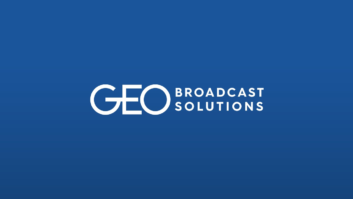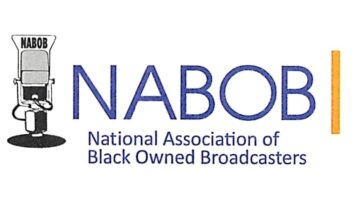GeoBroadcast Solutions is calling out iHeartMedia for comments made in an FCC rulemaking proceeding that would allow FM broadcasters to geo-target content to specific zones of their coverage area for limited periods of time.
In fact, GBS says iHeart “today offers a service available to only iHeart’s stations that enables advertisers to do exactly the same thing, namely, offer advertisers the ability to geo-target their ads including in larger markets.”
iHeartMedia in a series of filings on Docket MB20-401 vigorously argued against adoption of the geo-target technology, citing unresolved technical concerns as well as a fear that it could completely upend the radio industry’s business model.
“While GBS attempts to convince the commission that its proposal will help smaller and minority-owned broadcasters, the reality is quite the opposite. Instead, the station groups least able to handle increased competition and a downward pressure on advertising rates are small and less-well-resourced ones,” iHeart wrote in comments filed in 2021.
GeoBroadcast says iHeart is being disingenuous with its allegations and said the broadcaster’s business practices prove it.
iHeartMedia declined comment for this story.
The technology from GBS, which it brands as ZoneCasting, uses FM boosters to allow for hyperlocal advertising and content independent of the signals of the primary station within different portions of the primary’s protected service contour. GBS claims any resulting co-channel interference or self-interference is manageable and not detrimental to listeners.
Radio World reported earlier NAB and the Small Radio Broadcaster Coalition were among the groups who questioned the technical soundness of geo-targeting and asked for further vetting of the system.
However, iHeart has voiced a more economics-based argument against the technology. The broadcasters claim radio stations already face a challenging advertising environment due to the twin pressures of new competitors and an extended pandemic, and worry the FCC proposal could potentially exert even more downward pressure on the advertising revenue and fundamentally alter the radio industry’s business model.
Geo-targeting and specifically the GBS ZoneCasting technology run the “risk splintering the local advertising market and crippling local radio stations at the worst possible moment for the industry.”
Other large radio broadcast groups, including Beasley Media Group, Cumulus Media, Audacy and Urban One, also have urged the FCC to be cautious in possible adoption of the technology.
Now GBS, in a letter to the FCC, throws shade at iHeart and accuses the broadcaster of leading a campaign of “unsubstantiated opposition” even as it offers geo-targeting to clients.
The company points to iHeart’s AdBuilder website, which lets ad buyers purchase ads on iHeart stations. “One core feature of iHeart AdBuilder is that it prompts new and existing advertisers to select communities, on a map, where they would like to target their ads as one of the first steps in the process of creating an ad,” GBS states in the letter.
GBS writes further in its correspondence to the FCC: “In light of this current offering, the commission should view skeptically claims from iHeart and its allies that geo-targeting content could create negative economic consequences for broadcasters. The disconnect between the iHeart AdBuilder website and the rhetoric from iHeart and its allies simply reveals the thinly veiled goal of the largest radio group owners reinforcing and seeking to maintain their dominant position in the market by denying smaller broadcasters an opportunity to use technology to level the playing field.”
GBS acknowledges that the geo-targeting of the iHeart AdBuilder platform differs from the use of geo-targeting at the zone level achieved by using FM boosters. “iHeart’s solution offers different content within a radio market defined by an iHeart station’s footprint whereas FM booster targeting offers different content within a radio market as defined by where the booster is installed. Both solutions imply more targeted ad spend by allowing advertisers to address their targeted audience while increasing overall revenue to the broadcaster.”
The GBS letter, prepared by Covington & Burling LLP, concludes: “We hope that this information is helpful to the commission in considering how the current industry landscape could be impacted by the proposed rule, and the potential economic opportunities that it may unlock for broadcasters and small and minority businesses alike.”
Furthermore, as GeoBroadcast has pointed out throughout the proceeding, “if the proposed rules are adopted, any change in a broadcaster’s operations would be voluntary. Broadcasters can decide for themselves if providing geo-targeted content is economically beneficial.”
GeoBroadcast Solutions has conducted field testing of its ZoneCasting system at several radio stations in the United States and is implementing the technology at KSJO(FM) in San Jose, Calif. The station began participating in an FCC experimental operation of the FM booster system in October and will continue broadcasting localized weather, sponsored traffic, and news during short parts of the broadcast hour through February 2022.
The tech company’s FM booster geo-targeting system also is slated to be implemented at WRBJ(FM) in Jackson, Miss., which has also been granted experimental authority, possibly as soon as late January.
Comment on this or any article. Email [email protected].







